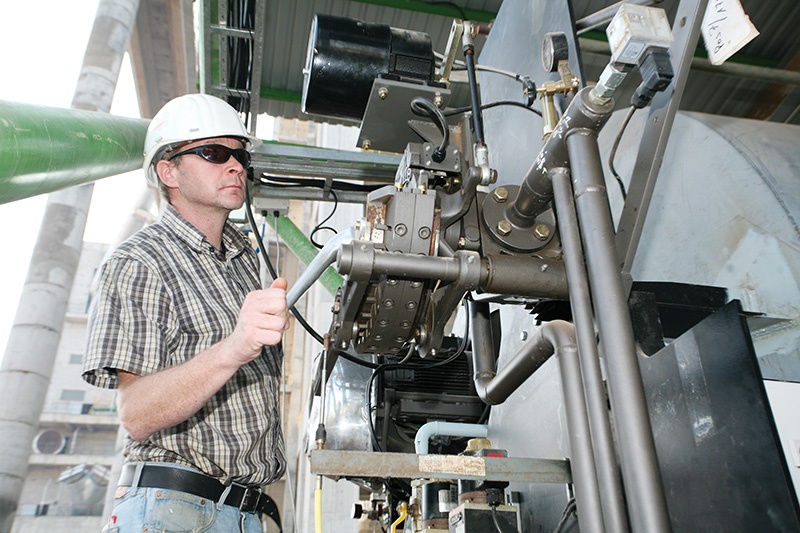Snags persist in work permit process for non-nationals
 |
| Many non-nationals are struggling to move between provinces for work due to pandemic regulations, photo Le Toan |
Representatives of the forum’s (VBF) Human Resources Working Group raised concerns over heavy admin procedures and requirements for granting work permits to non-nationals in the framework of Decree No.152/2020/ND-CP released in 2020 on the management of foreign workers in Vietnam as well as the hiring of Vietnamese employees that work for foreign businesses.
According to working group head Colin Blackwell, the pandemic has created a narrower filter of incoming arrivals of foreigners coming to work in Vietnam. The immigration authorities have also stopped renewing visas for those already in the country without work permits, partly in an attempt to significantly improve the quality of the overseas workforce in Vietnam.
“However, the new requirements and new strict rules applied have significantly impacted foreign investors. Many major investors have raised issues about the sudden non-eligibility of work permits for their foreign experts. It came as a big surprise to everyone that a work permit issued under the former decree could not be renewed or used to justify the qualification for a new work permit application under Decree 152,” Blackwell said.
On vietnam-visa.com, an assistance portal operated by Vietnam Discovery Travel, non-nationals who have a valid visa or legal temporary residence cards still face numerous problems in getting approval for entering the country.
As noted on the website, procedures and regulations on immigration and quarantine are different in cities and provinces, depending on the seriousness of local infections. Besides this, it takes time to proceed with paperwork and get in touch with local authorities to complete procedures. At present, a lot of experts cannot enter Vietnam nor move between cities and provinces to monitor operations and repair equipment and machinery, which impacts their operations. Many contracts have been cancelled due to a lack of such experts as a result.
Blackwell’s working group reflected that the stricter regulations of Decree 152 compared to the former decree is no longer necessary. “The requirement for a work permit in each province where the foreigner will be working is an extra administrative burden. We suggest a revert back to the work location report as per the former decree, which means that the work permit held by one foreigner should be recognised by other provincial labour authorities,” Blackwell said.
Emphasising the importance of easing procedures about work permits, co-chairman of the VBF Consortium Tetsu Funayama said that the compromise between localities in resolving work permit issues is as important as the effort in foreign investment attraction. “The arrival of foreign experts and the convenience of movement between cities and provinces is one of the most important factors to help manufacturers come back to normal operations,” Funayama said.
In order to deal with the problems, members of the working group led by Blackwell suggested that the duration of Resolution No.105/NQ-CP released last September should be extended, which supports enterprises, cooperatives, and business households and eases several regulations on the grant, extension, and confirmation of work permits.
The easing of certain permit rules brought about by Resolution 105 has benefited the processing of recent applications, especially the relaxed requirements on qualification documents from foreign nationals, and the flexibility for work permit holders to work at multiple locations for a temporary period of up to six months without having to obtain another permit.
“Investors have expressed concerns about the implementation period of Resolution 105, as it had been issued under the auspices of the current pandemic situation in Vietnam,” Blackwell said. “It may be challenging to go through another adjustment period for both businesses and labour officials if local labour departments must revert back to the stricter standards mandated by Decree 152. We expect the Ministry of Labour, Invalids and Social Affairs to explore solutions for the measures brought by Resolution 105 to remain applicable after the pandemic is over.”
What the stars mean:
★ Poor ★ ★ Promising ★★★ Good ★★★★ Very good ★★★★★ Exceptional
Related Contents
Latest News
More News
- Hermes joins Long Thanh cargo terminal development (February 04, 2026 | 15:59)
- SCG enhances production and distribution in Vietnam (February 04, 2026 | 08:00)
- UNIVACCO strengthens Asia expansion with Vietnam facility (February 03, 2026 | 08:00)
- Cai Mep Ha Port project wins approval with $1.95bn investment (February 02, 2026 | 16:17)
- Repositioning Vietnam in Asia’s manufacturing race (February 02, 2026 | 16:00)
- Manufacturing growth remains solid in early 2026 (February 02, 2026 | 15:28)
- Navigating venture capital trends across the continent (February 02, 2026 | 14:00)
- Motivations to achieve high growth (February 02, 2026 | 11:00)
- Capacity and regulations among British areas of expertise in IFCs (February 02, 2026 | 09:09)
- Transition underway in German investment across Vietnam (February 02, 2026 | 08:00)

 Tag:
Tag:




















 Mobile Version
Mobile Version